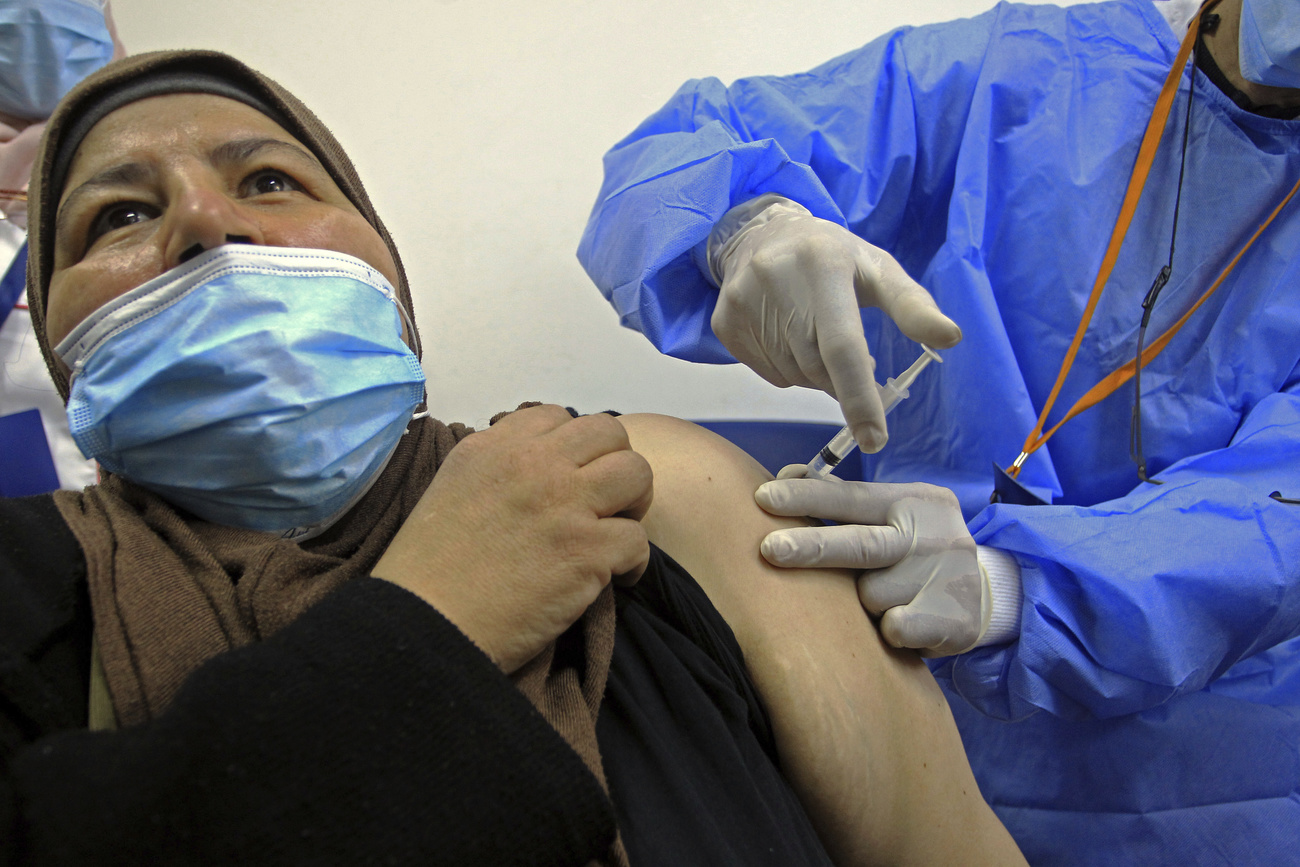
Ethics commission rejects compulsory vaccinations

A general vaccination obligation in Switzerland would interfere “disproportionately with fundamental rights”, according to the National Advisory Commission on Biomedical Ethics (NCE).
The commission also advised against mandatory vaccination for certain groups of the population, such as healthcare workers. “To prescribe such self-protection for specific groups would be paternalistic and unjustifiable,” it said in a statementExternal link on Friday.
In addition, it said that unequal treatment of vaccinated and non-vaccinated people via a vaccination certificate could only be justified if vaccination guaranteed protection against virus transmission and everyone had access to the vaccination.
The NCE said that issues concerning vaccination certificates needed to be “explicitly regulated”.
On January 4, 2021, the government started to roll out its vaccination plan (vaccinations began in late December). The government wants to inoculate six million people or 70% of the population – on a voluntary basis – by summer, or up to 70,000 vaccine shots a day.
Anyone over 75 and the most vulnerable should get a shot by the end of February, followed by 70% of over-65s by the end of March. The rest of the population should then follow.
The authorities have reserved over 30 million vaccine doses from Pfizer/BioNTech, Moderna, AstraZeneca, Curevac and Novavax. Switzerland has a population of 8.6 million. So far, there are two vaccines available in Switzerland, those from Pfizer/BioNTech and Moderna. Others should follow.
It did not exclude that, under certain conditions, a vaccination certificate may be required for certain activities. However, “it is imperative to ensure that the fundamental rights of all people are safeguarded, that potential inequalities of treatment are minimised and that the basic needs of each person are met”.

More
Coronavirus: the situation in Switzerland
Scientific arguments
The commission also demanded that official communication encouraging the population to be vaccinated be adapted to different target groups. It must be based on scientific arguments so that citizens can make a decision that takes account of existing uncertainties, it said.
Finally, the NEC called for greater Swiss involvement in promoting access to vaccines for poor countries. In particular, it should become more involved in the COVAX initiative, a WHO-led scheme aimed at ensuring equitable access to vaccines against Covid.
On Thursday, 1,356 more cases of Covid-19 and 22 deaths were recorded in Switzerland and Liechtenstein. In total, some 9,000 people have died in connection with Covid-19.

More
In the vaccine race, can COVAX help poorer countries catch up?

In compliance with the JTI standards
More: SWI swissinfo.ch certified by the Journalism Trust Initiative





























You can find an overview of ongoing debates with our journalists here . Please join us!
If you want to start a conversation about a topic raised in this article or want to report factual errors, email us at english@swissinfo.ch.